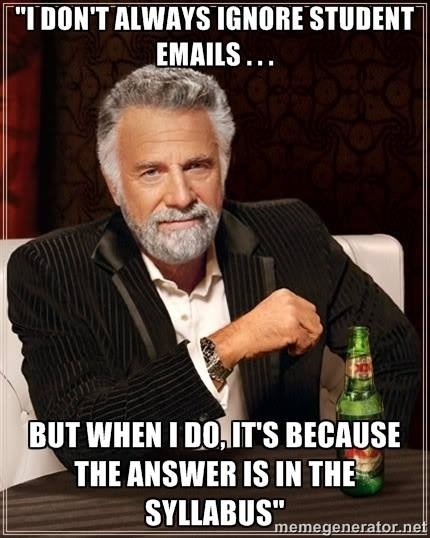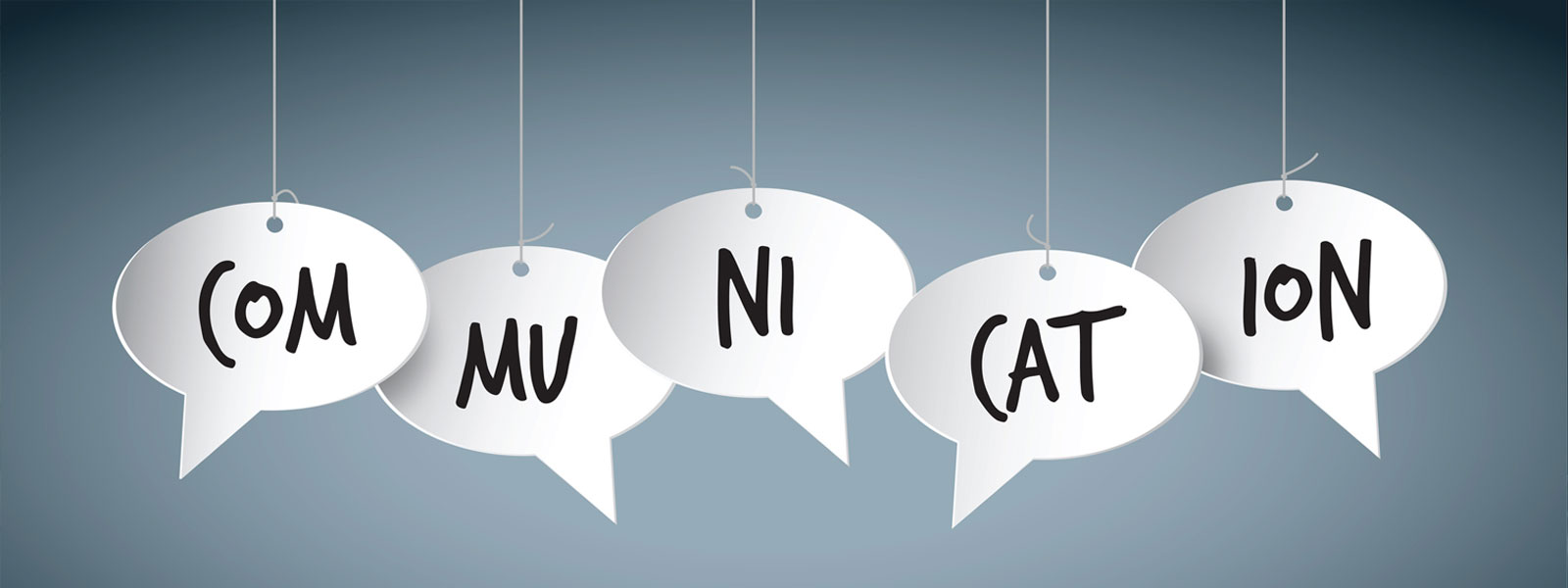Communication is integral to success, no matter what we’re talking about. In a digital world, these literacies are particularly important. Not only should you develop and perfect your communication skills while in college, you need to use those skills everyday with your peers and professors. You must be present and participate. More importantly, if you must miss a class session, communication is even more important to get caught back up. Don’t be shy: communicate.
While I’m still fine with conventional modes of communication — like the phone and office visits — other forms are perhaps more convenient these days, particularly for online students. As we become more and more digital, the ways we prefer to communicate will likely change. As of January 2016, the following are preferred, in order of preference (and a speedier response):
Office Hours
My office hours are listed on the contact page of this site. They are updated each semester, depending on my teaching schedule. If you cannot make it during my posted office hours, you may contact me for an appointment. Increasingly, I teach online, so traditional “office hours” are passé. My office hours include a Zoom meeting that you can book right online.
Middle Georgia State University provides an email account free of charge to all students as an official means of communication. Therefore, you should become familiar with the email system and get into the habit of checking it regularly, at least once a day. You may reach me at: gerald.lucas![]() mga.edu .
mga.edu .
Please use my MGA email address; never use the D2L system — especially if your course is not using D2L, which is very likely. You will not receive a reply if you use D2L to send email. |
You may use whatever email address you would like, but please only use my official university email for electronic correspondence.
Email Etiquette

Please be considerate when emailing your professors: always include your name, the class that you are in, and why you are emailing; in fact, consider using a military approach to emails.[2] Also, please use a descriptive subject line so I can tell right away what your email concerns. Sending me the complete information will not only make my life easier, but shows consideration for your recipient and will result in a speedy response. This said: any email that does not contain all of the necessary information will be deleted. Thank you for your thoughtfulness.
I usually do not check email on weekends or holidays. Thank you for your understanding.
Do not send the same message to me twice. I.e., do not send me an email at my MGA address and CC me at another. You only need to send it to me once.
If you sent me an email, and I did not reply, here are some reasons why that might be the case:
- No subject line;
- Incorrect or mistyped email address;
- You did not include the necessary information; e.g. I don’t know who you are or what class you are in;
- You did not ask a question;
- The email was rude or abusive.
If you do not hear back from me within 24 hours (excluding weekends), then you might wish to review your sent message for any of the above errors.
Technology Competency
From the former MGA Academic Catalog: “Students who wish to receive a degree must demonstrate that they are competent in the use of technology.”
While this statement is somewhat vague — what is “competency”? what is “technology”? — this class will make certain assumptions about students’ technological abilities in the following ways:
- Students should be familiar with the general uses of a computer (especially if they are taking an online course) — i.e., how to navigate in an operating system: launching programs, quitting programs, creating directories and files, etc.
- Students should also be familiar with the uses of the Internet, specifically a Web browser. All course material will be delivered hypertextually, making this requirement paramount.
- Even if students lack the abilities needed for the class, they should be willing to put forth the effort to learn what they need to in order to succeed in the course.
Computer competency is an integral skill in any discipline, and this course uses digital technology in an effort to promote technological literacy in the humanities classroom and beyond. Please see me for additional assistance when necessary. And, if you do not understand something, ask.
Zoom
During office hours and sometimes beyond — though rarely on the weekends — I will be available on Zoom for video conference. Schedule a meeting anytime.
notes
- ↑ Please do not call my office phone. If you need to talk, send an email first, and we’ll arrange to speak.
- ↑ Sehgal, Kabir (November 22, 2016). "How to Write Email with Military Precision". Pocket. Harvard Business Review. Retrieved 2019-05-06.

